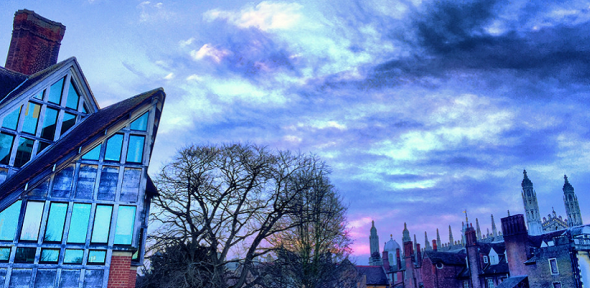
Libraries
Most faculties and departments have their own library, the majority of which will admit Cambridge graduate students for reference purposes wherever their place of work. Colleges also have their own libraries. Together these libraries supply the research needs of most of our graduate students (see the full list of Cambridge libraries).
The Cambridge University Library (UL) is one of the largest libraries in the world, and one of the three main research libraries in England. As a legal deposit library, the UL is entitled to receive a copy of every publication originating in the UK, and it purchases many books from abroad as well. Students also have access to the UL's 22 Affiliated Libraries covering subjects as diverse as African Studies, Law and Social and Political Sciences.
Museums
The University has eight specialist museums and collections, as well as the University Botanic Garden. All are used by our students for study, research and enjoyment, and encompass a wide range of resources from local archaeological finds and paintings of international renown to specimens collected by Charles Darwin.
The internationally renowned Fitzwilliam Museum houses the University's art collections and provides a superb resource for research and teaching across several departments. It has 14 academic staff as well as postdoctoral workers and graduate students.
Language Tuition
If you wish to learn a language while at Cambridge, or if you need support with English language, you can use the University's Language Centre. The Advising Team are available for learning support and to guide you in using the resources.
The Resource Library collection contains printed material, sound recordings, video recordings, off-air recordings, foreign language films, periodicals, pamphlets, multimedia, electronic and online resources. Resources are available in over 140 languages, including languages for international communication, indigenous and heritage languages, less widely taught languages, pidgins and creoles, as well as material in some endangered and extinct languages.
Computing Support
As well as computer facilities within your department and college, the central University Information Services provide training, a Help Desk, and specialist computing facilities.
University Information Services
Skills Training
All graduate students receive training in research skills via their department or faculty's graduate training programme. In addition, although not a formal part of your course, there is plenty of opportunity to attend courses in generic skills. These are largely provided by the faculties in collaboration with constituent departments, the Centre for Personal and Professional Development, and the Careers Service.
Courses and seminars are offered on a variety of topics, including skills for conference presentation, understanding entrepreneurship, how to stay motivated, how to recognise and take advantage of career opportunities, career planning, and project management.
These courses will both support your graduate study and provide you with good key skills that will help you further your subsequent career. Such courses are not compulsory, but students are advised to take full advantage of the opportunities that are available. See the Cambridge University Skills Portal for full information on the skills training opportunities available to you.
Researcher Development Programme
